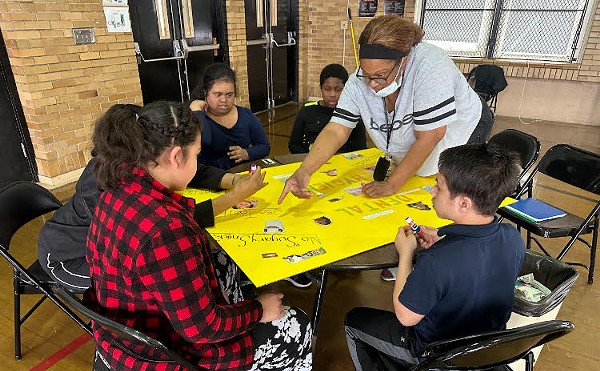Some school-board members exhibit more passion for what happens in a teacher’s bedroom than in the teacher’s classroom. If they focused more on improving Kentucky schools, parents would sleep a lot better.
An example: The Jefferson County Board of Education voted 4-3 on Nov. 26 to add special protection for gay and lesbian employees to its harassment and employment policies.
The problem: Teachers aren’t being harassed because of their sexual preferences.
At least they aren’t filing official complaints in Jefferson County, the state’s largest school district. And judging from the often-heard protests from some gays and those who claim to speak for them, there’s not a chance in Hades they wouldn’t complain if harassment occurred.
Ironically, now that the board remodeled its priorities by moving the bedroom into the boardroom, students might very well pay for this unwarranted intrusion — in more ways than one.
“Say you’ve got a big, male teacher and a 10-year-old boy makes some smart-aleck comment about how he dresses or the way he acts,” said Stacy Grimm, whose son attends a Jefferson County high school. “Is that student going to be suspended, or worse, charged with harassment under this new rule?”
An equally sobering question is: Will the student even be able to read the front-page stories about the issue? Test scores indicate many could not.
It would be different if current policies allowed homosexuals to be harassed. No one should be discriminated against, least of all the parents who have a vested interest in their children’s education.
Yet, Louisville’s school bureaucrats dedicated an enormous amount of time toward satisfying a small minority while ignoring the enormous number of voice messages and e-mails they received opposing this policy.
But that won’t stop some from charging me and conscientious parents like Grimm with being homophobic or bigoted. That stereotype should be ignored — just as the Jefferson County board ignored a multitude of parents.
Grimm’s daughter attends Sacred Heart Academy.
“But we haven’t ruled out that we would send her to a public school in the future,” Grimm said.
That doesn’t sound like a bigoted, anti-public education redneck to me.
Those who would condemn Grimm are the same geniuses who accuse anyone pointing out failure in Kentucky’s public schools as incontestably opposed to public education. I’ve got the e-mails to prove it.
Am I “anti-public education” for reporting that 38 percent of students who were freshmen in Jefferson County’s high schools in 1999 didn’t graduate in 2003?
I bet the parents of special-needs students don’t consider me opposed to public education for noting that average student achievement gaps in CATS scores worsens as these children get pushed from one grade to another.
“In Louisville’s elementary schools, the learning-disabled kids trail in proficiency by 22 points in reading and 23 points in math, but by middle school, they trail by an alarming 41 points in reading and 32 points in math,” said noted education expert Richard Innes.
Innes has closely followed developments in our state’s education system, particularly since the Kentucky Education Reform Act passed 17 years ago. No one I know — not even bureaucrats frustrated with his passion for truth and ability to discover it — consider this stellar and intellectually honest researcher as a bigot or opposed to public schools.
This isn’t about parents’ moral beliefs, either. Groups like the Family Foundation and members of the clergy are doing a good job of addressing those issues. This is about a school bureaucracy exercising unneeded government intrusion and increasingly ignoring parents’ wishes and students’ needs in favor of a small minority of adults.
“The marvel of all history is the patience with which men and women submit to burdens unnecessarily laid upon them by their governments,” said 20th century politician Sen. William Borah.
The good news: Kentucky’s parents are losing patience with a monopolistic, one-size-fits-all system that gives them little choice, creates lots of strife and serves up large helpings of mediocrity with side orders of failure.
Jim Waters is the director of policy and communications for the Bluegrass Institute, Kentucky’s free-market think tank. You can read previously published columns at www.bipps.org. Contact him at [email protected]





